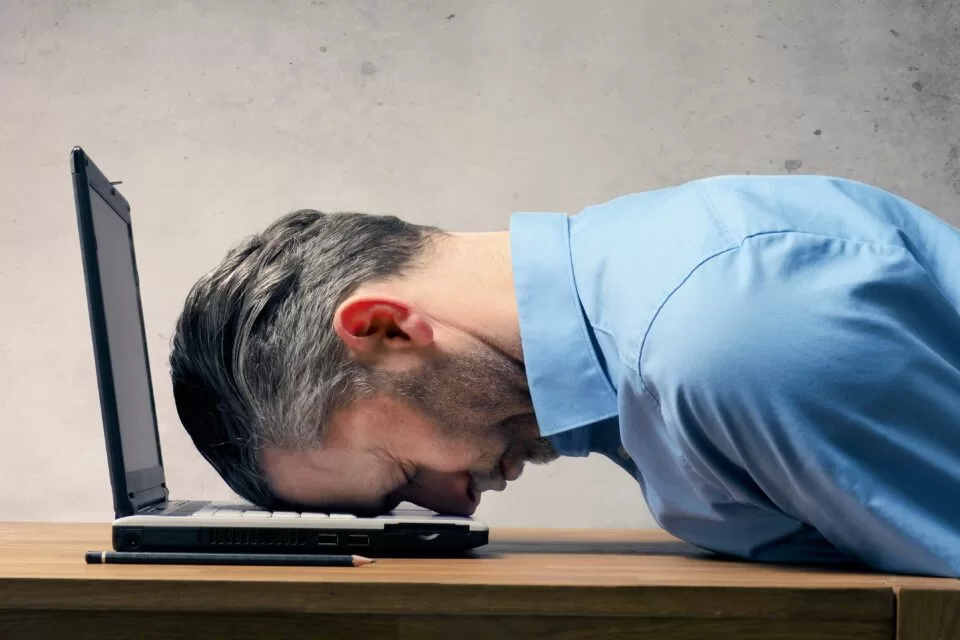Fatigue, insomnia, and frequent illness are among the early indicators of burnout and exhaustion caused by workplace stress, according to experts. As reports emerge of a young Chartered Accountant (CA) from Pune who tragically passed away due to intense work pressure, the issue of burnout has once again sparked concern over the rising toll of occupational stress on mental and physical health.
The incident that has drawn significant attention involves 26-year-old Anna Sebastian Perayil, who reportedly lost her life due to what her mother, Anita Augustine, described as a “backbreaking workload” at Ernst & Young (EY). In a deeply emotional letter addressed to EY Chairman Rajiv Memani, Augustine shared that despite her daughter’s dedication, “nobody from the office was present even for her funeral.”
Perayil had been employed at the global accounting firm for just four months, but her untimely demise has become emblematic of the broader issue of workplace burnout, with several other tragic cases echoing a similar pattern.
Earlier this year, senior journalist Satish Nandgaonkar, 57, working for Hindustan Times, collapsed and died of a cardiac arrest just outside the newspaper’s Mumbai office. Reports indicate that he had faced workplace humiliation hours before the fatal incident. Similarly, in a tragic case last year, 25-year-old Saurabh Kumar Laddha, an employee of McKinsey and Company, died by suicide after jumping from his building in Mumbai, reportedly due to the immense pressure at work.
These cases underscore a growing epidemic of burnout in high-pressure professions, prompting health experts to raise alarms about the physical and emotional toll of work-related stress.
Recognizing the Signs of Burnout
Dr. Suchismitha Rajamanya, Lead Consultant and Head of Internal Medicine at Aster Whitefield Hospital in Bengaluru, highlighted that stress-induced burnout can manifest in multiple ways. “Almost every week, approximately 6 to 10 patients come seeking help, reporting stress and exhaustion,” she told IANS.
Common physical signs include chronic fatigue, insomnia, and frequent illnesses. Additionally, burnout can have severe emotional and psychological implications, often leading to feelings of hopelessness, frustration, and emotional depletion. Dr. Rajamanya explained that burnout could also result in a decline in motivation, absenteeism, and a noticeable decrease in work performance.
“The key is to prevent oneself from reaching this breaking point and recognize when help is needed,” she stressed.
Burnout Is Rampant but Often Unspoken
According to a recent survey by Great Place To Work India, an organization specializing in workplace culture assessments, one in every four employees struggles to talk about mental health issues like stress, anxiety, and burnout at the workplace. This silence can exacerbate the problem, as nearly 56% of surveyed employees admitted to being affected by burnout.
Workplace stress has long-term impacts on health. A recent study published in the Journal of the American Heart Association indicated that high job strain and an imbalance between effort and reward could significantly raise the risk of developing atrial fibrillation (AFib), a heart condition characterized by an irregular heartbeat.
Practical Steps to Combat Stress
Counseling psychologist Divya Mohindroo, founder of Embrace Imperfections, emphasized the importance of balancing emotional and practical life aspects to mitigate stress. “Thinking practically rather than emotionally can help individuals better manage workplace pressure,” she advised.
Mohindroo also suggested simple lifestyle changes that can help manage stress, such as:
- Staying hydrated throughout the day to flush out toxins.
- Eating nutritious meals to fuel both the body and mind.
- Engaging in 45 minutes of daily exercise, which helps release endorphins—commonly known as the “feel-good hormones.”
- Maintaining a healthy sleep cycle, as adequate rest is essential for recovery from stress.
In addition to these daily habits, experts also recommend using meditation or deep breathing techniques for stress management. More importantly, reaching out to family, friends, support groups, or mental health professionals can be crucial for individuals experiencing burnout.
A Call for Greater Awareness and Support
As tragic cases like those of Perayil, Nandgaonkar, and Laddha come to light, they underscore the critical need for workplaces to address the growing problem of stress-induced burnout. Ensuring open conversations about mental health, implementing support structures for employees, and recognizing the early signs of burnout could be key steps in preventing further loss of life due to overwhelming work pressure.
In light of these rising concerns, experts stress the importance of employers fostering healthier work environments, where employees can speak openly about their struggles and access the help they need before burnout takes a catastrophic toll.












